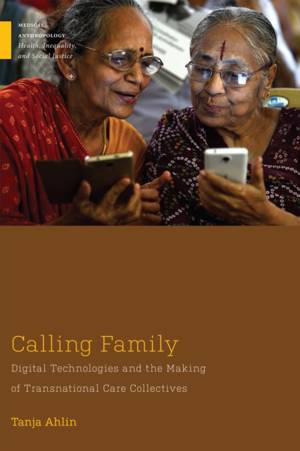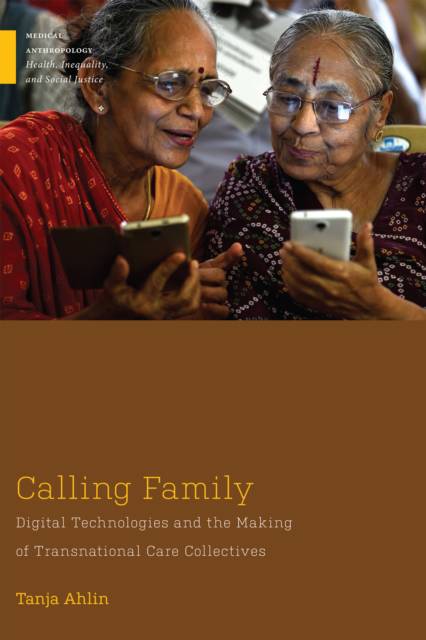
- Afhalen na 1 uur in een winkel met voorraad
- Gratis thuislevering in België vanaf € 30
- Ruim aanbod met 7 miljoen producten
- Afhalen na 1 uur in een winkel met voorraad
- Gratis thuislevering in België vanaf € 30
- Ruim aanbod met 7 miljoen producten
Zoeken
€ 41,95
+ 83 punten
Uitvoering
Omschrijving
How do digital technologies shape both how people care for each other and, through that, who they are? With technological innovation is on the rise and increasing migration introducing vast distances between family members--a situation additionally complicated by the COVID-19 pandemic and the requirements of physical distancing, especially for the most vulnerable - older adults--this is a pertinent question. Through ethnographic fieldwork among families of migrating nurses from Kerala, India, Tanja Ahlin explores how digital technologies shape elder care when adult children and their aging parents live far apart. Coming from a country in which appropriate elder care is closely associated with co-residence, these families tinker with smartphones and social media to establish how care at a distance can and should be done to be considered good. Through the notion of transnational care collectives, Calling Family uncovers the subtle workings of digital technologies on care across countries and continents when being physically together is not feasible. Calling Family provides a better understanding of technological relationality that can only be expected to further intensify in the future. This book is also freely available online as an open access digital edition. The open access publication was financially supported by the Social Science Research Master and partly also by the Health, Care and the Body Programme Group of the Department of Anthropology, both at the Amsterdam Institute of Social Science Research, University of Amsterdam.
Specificaties
Betrokkenen
- Auteur(s):
- Uitgeverij:
Inhoud
- Aantal bladzijden:
- 212
- Taal:
- Engels
- Reeks:
Eigenschappen
- Productcode (EAN):
- 9781978834323
- Verschijningsdatum:
- 11/08/2023
- Uitvoering:
- Paperback
- Formaat:
- Trade paperback (VS)
- Afmetingen:
- 150 mm x 226 mm
- Gewicht:
- 317 g

Alleen bij Standaard Boekhandel
+ 83 punten op je klantenkaart van Standaard Boekhandel
Beoordelingen
We publiceren alleen reviews die voldoen aan de voorwaarden voor reviews. Bekijk onze voorwaarden voor reviews.











